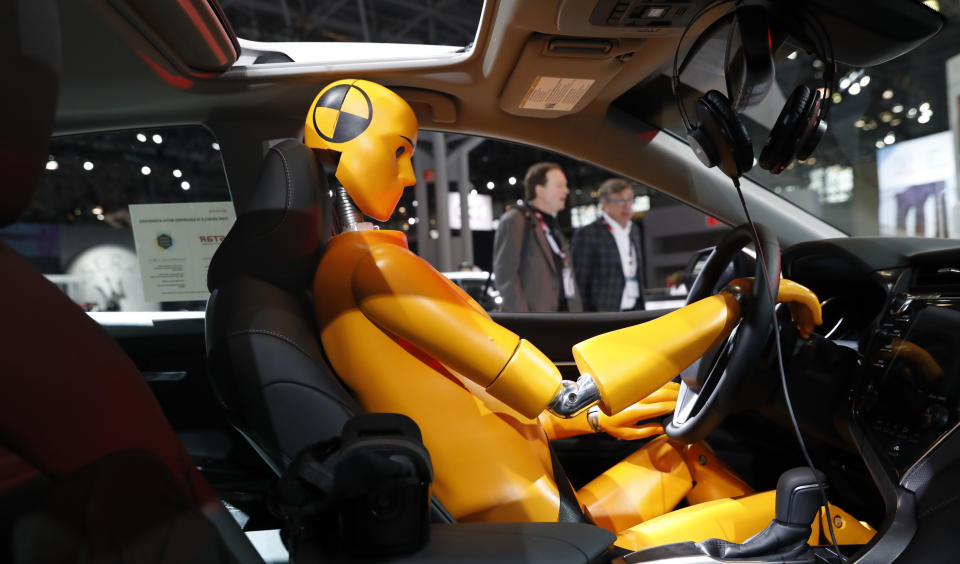How 'data bias' makes everyday products sexist — from medicine to seat belts
Is your car sexist? Caroline Criado Perez has found that many of the services and products we interact with on a daily basis were not designed with women in mind.
Perez examines how the “default male” mindset of the world affects everything from design to policymaking in her book “Invisible Women: Exposing Data Bias in a World Designed for Men,” which was awarded the 2019 Financial Times and McKinsey Business Book of the Year. The chair of the award called it “a stunning book that tells people about sexism that is hiding in plain sight.”
Cars, and more specifically seat belts, are one of the most prominent examples she sites of a product that was created with only the “default male” in mind.
“For decades, the only car crash test dummy that was used — and it's still the most commonly used one — was based around a 50th percentile man, as if the 50th percentile man is the 50th percentile human, which is generally what you find in all sorts of areas, from medicine to economics,” Perez told Yahoo Finance’s YFI AM on Thursday. “The problem with that dummy is that obviously it doesn't represent women.”

Perez explained how because the design doesn’t take into consideration the fact that women often sit farther forward than men, nor does seat-belt design accommodate women’s statures, “women are 47% more likely to be seriously injured if they're in a car crash and 17% more likely to die.”
She called this “one very glaring and obvious example” of the male-centric design of our world, but says the effects are evident in everything, “from medicine to economics.” She noted that a lot of medical research is collected from male bodies, meaning many medicines don’t work as well for women.
“If you look at something like heart disease, women are 50% more likely to be misdiagnosed, and they're more likely to die following a heart attack,” she said. It’s a twofold problem: women haven’t been taught the symptoms they are more likely to experience during a heart attack and the diagnostic tests to detect heart attacks weren’t designed to pick up the episodes in women.
“One of the most commonly used tests is looking for blockages, but female heart attacks may not present with blockages in the same way,” said Perez, spent nearly four years researching for her book. “So you get women sent home with something called undiagnosed chest pain when it turns out actually they've suffered from a heart attack.”
Moving away from the ‘default male’
Gender bias affects everyone and is often subconscious, she notes.
“Women suffer from this bias as well,” Perez said. “If someone hands you a stuffed toy, you're more likely to refer to it as he. If you see a dog, you're more likely to refer to it as he.”
Despite so much gender bias already ingrained in society, Perez said it’s very simple to move toward a system that acknowledges and incorporates gender diversity.
“We just have to collect sex disaggregated data. We just have to start collecting data on women, and we need to move away from the idea that default man, as I call him, is default human.”
Katie is an associate editor at Yahoo Finance. Follow her on Twitter.
Read More:
Salesforce's Benioff: Every company has a gender gap that CEOs must close
Women are now 42% of U.S. breadwinners — but also 'underestimate the costs of motherhood'
How Lyft is giving women 'one less excuse' to get mammograms
Follow Yahoo Finance on Twitter, Facebook, Instagram, Flipboard, SmartNews, LinkedIn, YouTube, and reddit.

 Yahoo Finance
Yahoo Finance 